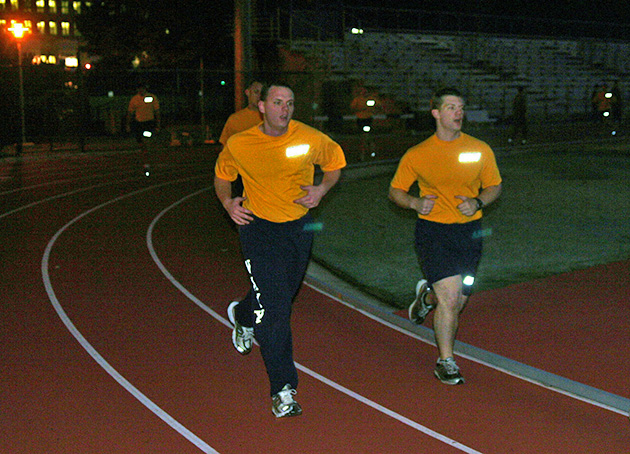Cardiovascular endurance, or aerobic fitness, is the ability to exercise continuously for extended periods without tiring, and is an important component of many sporting activities.
Walking or running tests are popular for determining aerobic fitness, as they can be performed by people of all ages and fitness levels, large groups can be done at once, and the tests are easy to conduct.
One of the greatest problems and sources of error with these tests is that good pacing is important to maximize results, and to get a true reflection of actual aerobic fitness. The instructors can assist by emphasizing the importance of maximal effort, encourage the participants during the test, by conducting a trial test in the week before the actual test so that they can get a feel for the required effort, or have them run at the mile pace for short distances during warm-up time.
As these tests have been performed for many years, and there is a lot of research using these tests, there are consequently a large range of variations and a large number of normative tables. When you compare the results from these tests to norms, it is important to check that the test procedures were the same, and that the target population is also similar.
 aerobic fitness test run
aerobic fitness test runAs these tests are usually performed outdoors, the environmental conditions can greatly affect results. You should try and control for any conditions that may affect the results, such as extreme heat or cold, or strong winds or poor condition of the running surface. For running courses that involve running laps around a field or track, the effect of wind can be balanced our as they progress around the track. Record any conditions if possible so that these may be taken into consideration when analyzing the results.
There are both tests conducted over a set time, and the distance covered recorded, and vice versa, test of a fixed distance where the finishing time is recorded. The later type of test is generally easier to administer. For example, Cooper first described a 12 minute run test, but later gave an alternative 1.5 mile (2.4km) run test.
Depending on the target population, there are several different tests you can use. For those that are unfit or elderly, the Rockport Walking Test or the 6 minute walk test may be suitable. For relatively fit adults, the test should be at least 10 minutes to ensure the energy demands are primarily supplied by the aerobic system. Shorter runs are more suitable for children.
Related Pages
- List of all aerobic endurance tests
- General Walk / Run Tests
- 1 Kilometer Run Test
- Endurance Run / Walk (1 mile)
- 1.5km run test
- APFT 2 Mile Run Test
- PRT 1.5 mile run test
- Marine PFT 3-Mile Run
- Cooper 12-minute test
- Balke 15-minute run test
- Rockport Walk Test
- Miller 20m Run Test
- 2 km Walk Test
- Half Mile Walk
- 6-minute Walk Test
- 6-minute Run Test
- FitnessGram Walk Test
- 3km run
- 1.6 km (1 mile) run
- 5 km run


 Current Events
Current Events